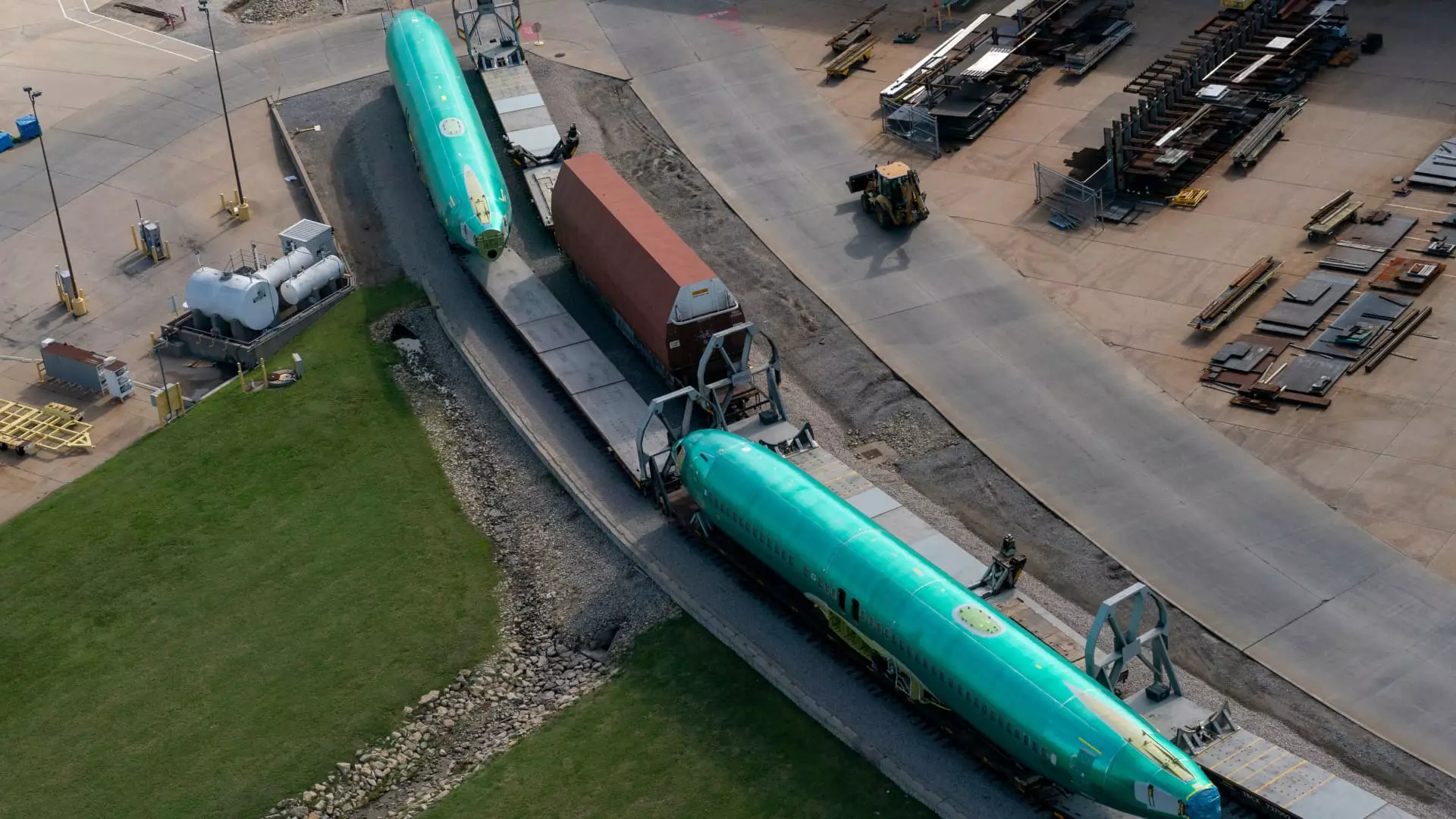The aerospace industry is currently experiencing significant disruptions, largely due to the ongoing strike by Boeing machinists. This industrial action entered its sixth week, primarily driven by discontent with a newly proposed labor contract, which was rejected with a substantial majority of 64%. The ramifications of this strike are far-reaching, not only affecting Boeing directly but also having severe implications for its suppliers, particularly Spirit AeroSystems.
In light of the protracted strike, Spirit AeroSystems, a pivotal supplier that manufactures fuselages for Boeing’s 737 Max and other critical aircraft components, is confronted with tough decisions. The company has already announced plans to furlough approximately 700 workers at its Wichita, Kansas facility. These furloughs, set to last 21 days, could commence as soon as next week if the strike continues beyond November 25. Spirit’s spokesperson, Joe Buccino, noted that while furloughs are necessary, additional layoffs could also be considered, underscoring the precarious state of the workforce.
This situation reflects the fragility of the aerospace supply chain, which had only recently begun to stabilize following disruptions caused by the COVID-19 pandemic. Many suppliers, including Spirit, have hesitated to make drastic workforce cuts due to the hard work invested in rebuilding their staff levels over the past few years. However, the ongoing strike has forced them to reevaluate their positions as financial pressures mount.
The implications of the strike extend beyond staffing concerns. Spirit AeroSystems recently revealed a staggering net loss of $477 million in the third quarter, more than double the loss reported during the same period the previous year. This financial strain highlights the ripple effects of Boeing’s halted production, significantly impacting suppliers that rely heavily on the aircraft manufacturer’s business.
As Boeing grapples with the challenges of the strike, its CEO, Kelly Ortberg, has emphasized the resolution of labor disputes as a top priority. The pressure is palpable, not only for Boeing but for the entire aerospace community, as companies like Airbus are also feeling similar strains in their supply chains.
The current climate presents a perfect storm of economic uncertainty. With thousands of machinists downing tools, the repercussions for the industry are significant. More than 32,000 Boeing machinists located across the Puget Sound region, Oregon, and other locations have taken part in the strike, which began on September 13. The union representing these workers is eager to resume negotiations, indicating a willingness on both sides to find common ground and bring an end to the standoff.
The future of Spirit AeroSystems and its workforce hangs in the balance, contingent on the resolution of the strike. As the aerospace sector continues to adapt to post-pandemic realities, the ability to manage labor relations effectively will prove critical in steering the industry back to stability. A resolution to the strike is not merely a matter of economic necessity but also a vital step toward restoring confidence within the supply chain and ensuring the long-term viability of the aerospace sector.

